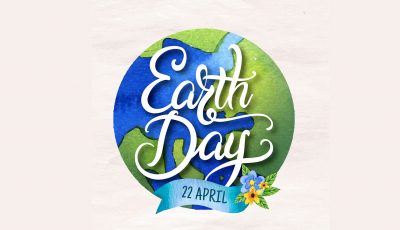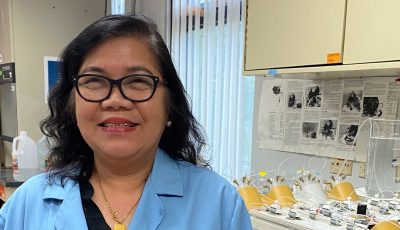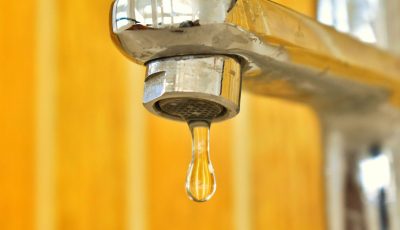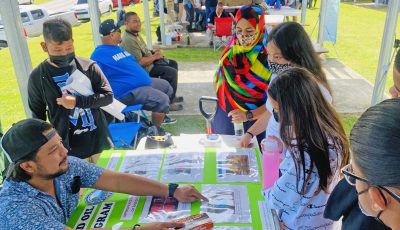BECQ to bring watershed management message to community
Faced with islandwide issues such as pollution, sedimentation, and erosions, community-level meetings will be held all over the islands, following a recent workshop decision-makers had to discuss CNMI’s three major watersheds: Garapan, Laolao, and Achugao.
The Bureau of Environmental and Coastal Quality, through its Division of Coastal Resources Management, is working on a plan for the future management of the three watersheds, revolving around priorities for the next five years.
“The next stage will be having community meetings, similar to what we had but at the community level, to find out issues that the community identifies, and get the response to the actions identified by agencies during this last meeting,” CRM watershed coordinator Zachary Williams said.
The Watershed Working Group is also being resuscitated to discuss issues and to cooperatively plan with other agencies toward working on watershed projects.
Williams said the group, while more focused on watersheds on Saipan, will also be discussing the watershed on Rota. He added that the discussions, which will happen on March, will be open to the public.
In terms of watershed management, BECQ, through its Division on Environmental Quality, has been doing stream and water quality monitoring. DEQ is also working on their Integrated Report, which summarizes surface water quality in the CNMI over the last two years.
“Water quality values are a great indicator of [watershed] management success, it’s a baseline indicator,” Williams said, adding that it is one of the biggest, most direct, and quickest indicator of project success.
“Let’s say one of our projects is revegetation on the uplands. We can look at sediment loads in the streams as an indicator if that was successful or not. If we reduce sediment by revegetating, then that’s good, but if we’re seeing no difference or even worse, then we have to reevaluate our project,” he explained.
The community, too, can greatly help in watershed management.
“There’s lots of things you can do as a resident in terms of disposing of waste properly,” Williams said. The proper disposal of garbage, as well as not dumping chemicals and cooking oils down the drain but disposing them properly, is important.
“There’s a lot you can do in terms of improving your yard’s ability to capture water and filter that water, particularly like landscaping with native plants [or] rain capture from your gutter. …Those add up in terms of water getting washed off onto our streets and causing further erosion,” he added.
Williams also encourages members of the community to be aware of what’s happening in the community, and to join in planning meetings and projects that keep the community and the islands’ resources clean.
To be updated on watershed initiatives and on the scheduled meetings of the Watershed Working Group, visit the CRM website at https://dcrm.gov.mp.



























